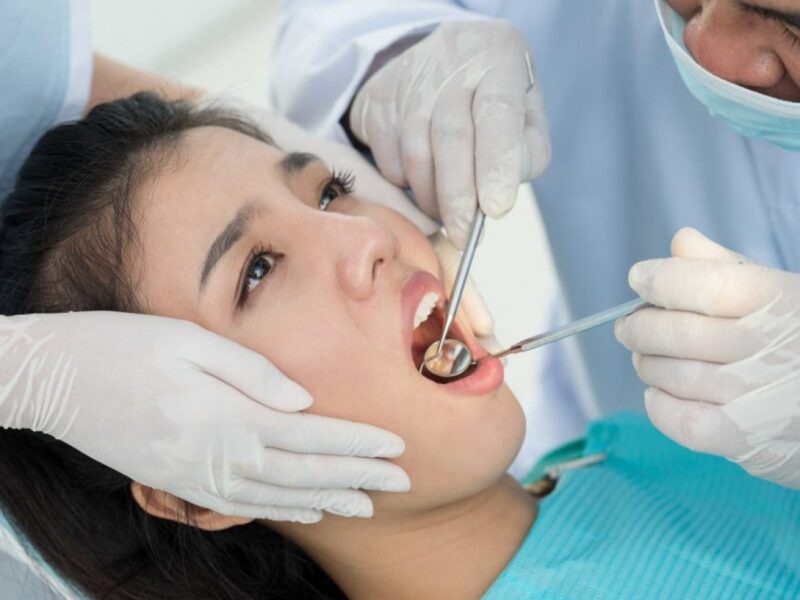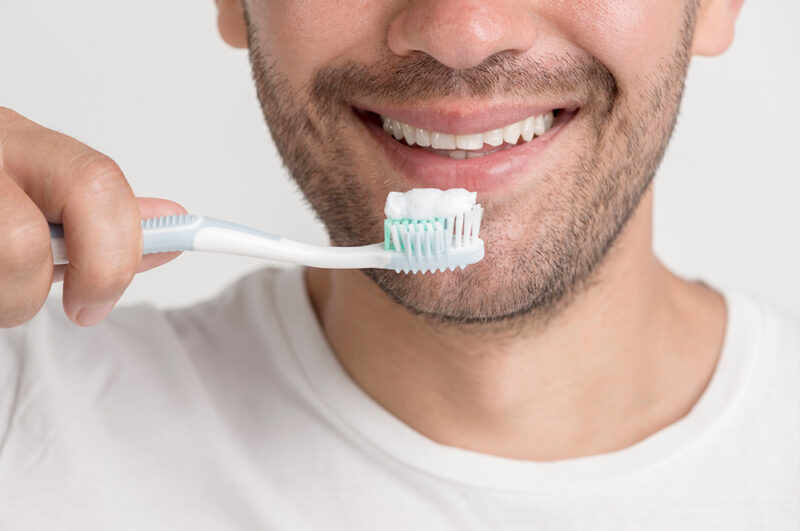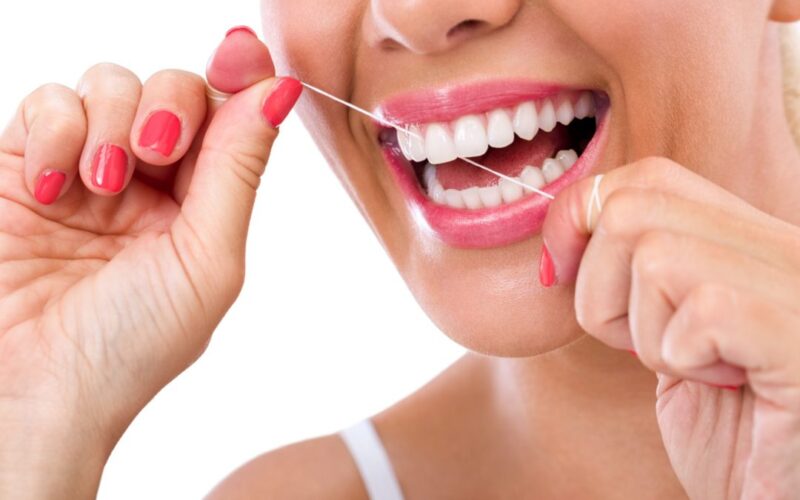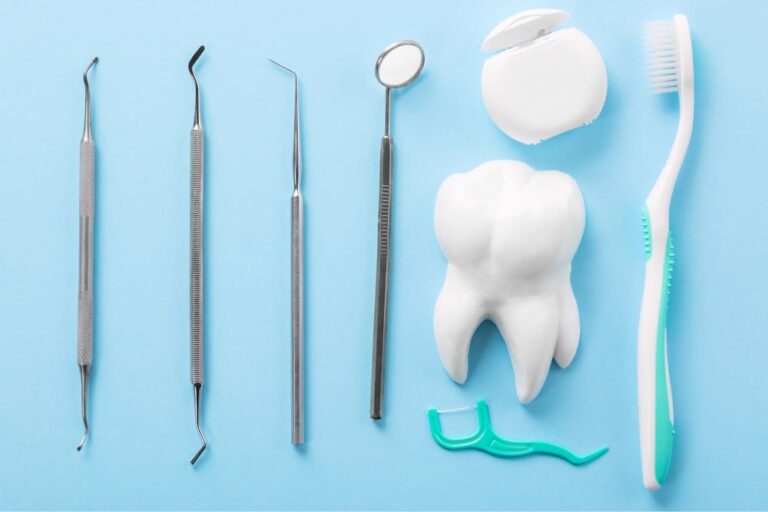Dental health is a vital component of our overall health and well-being. A healthy mouth contributes to good physical health and enhances self-esteem and confidence. However, many people ignore the importance of dental hygiene, leading to dental problems such as cavities, gum diseases, and bad breath.
Below, we will cover everything you need to know about dental health, including common dental problems, the basics of oral hygiene, and ways to maintain good dental health.
Common Dental Problems

Even with good oral hygiene practices, dental problems can still occur. Here are some of the most common dental problems and their causes:
• Tooth decaymostly happens when bacteria in your mouth produce acid that erodes tooth enamel, causing cavities. Poor oral hygiene, a diet high in starch and sugar, and a dry mouth can increase your risk of tooth decay.
• Gum disease: Gum disease (periodontal disease) is a common infection of the tissues that support your teeth. It is caused by bacteria that pile up in the gum line, leading to inflammation and gum recession. Gum disease can cause tooth loss if left untreated.
• Misaligned teeth:Misaligned teeth, or malocclusion, can be a dental problem because they can lead to various issues. When the teeth are not properly aligned, it can be difficult to maintain optimal oral hygiene. Misaligned teeth can also cause uneven wear on the teeth, which can result in tooth damage or loss. Furthermore, malocclusion can also cause problems with biting, chewing, and speaking, leading to discomfort and even pain. Regarding treatment options, people have several options for correcting misaligned teeth, including traditional metal braces and clear braces. So, it is suggested that you research when deciding between clear braces vs metal braces to pick the right option.
• Bad breath: Stinky breath can result from poor oral hygiene, dry mouth, gum disease, or certain foods and drinks. Regular brushing, flossing, and using mouthwash can help prevent bad breath.
• Tooth sensitivity: Tooth sensitivity occurs when the enamel on the teeth wears down, exposing the sensitive dentin underneath. Tooth sensitivity can be caused by tooth decay, gum recession, or overbrushing.
• Oral cancer: Oral cancer can develop in almost any corner of the mouth, including the tongue, lips, gums, cheeks, and roof or floor of the mouth. It’s often associated with tobacco and alcohol use and the human papillomavirus (HPV) infection. Oral cancer can cause symptoms such as mouth sores, pain, swelling, numbness, difficulty chewing or swallowing, and changes in the appearance of the mouth, including white or red patches or lumps. Regular dental checkups, as well as lifestyle changes such as reducing alcohol consumption, can also help reduce the risk of developing oral cancer.
Basics of Oral Hygiene

Oral hygiene means keeping your mouth healthy by removing food particles and plaque buildup.
The following are the basics of oral hygiene that you should follow to maintain good dental health:
1. Brushing your teeth
Brush twice daily with fluoride and a soft-bristled toothbrush. Make sure to brush all surfaces of your teeth, including the front, back, and top. Brushing the roof of your mouth can also help remove bacteria that cause bad breath.
Additionally, this expert dentist in Leominster MA also recommends not using too much pressure when brushing your teeth. Otherwise, you might brush off their enamel, leaving them susceptible to bacteria.
2. Flossing
Flossing once a day helps remove plaque buildup and food particles between your teeth that your toothbrush cannot reach. Gentle back-and-forth motions to slide the floss between your teeth and under your gum line are recommended.
3. Using mouthwash
Mouthwash is perfect for freshening your breath and killing the bacteria that cause plaque buildup and gum disease. Use an alcohol-free fluoride mouthwash.
4. Eating a healthy diet
A balanced diet that includes vegetables, fruits, whole grains, and lean protein can help keep your mouth healthy.
5. Visiting your dentist
Regular dental checkups and cleanings can help detect and prevent dental problems from worsening. Most dentists recommend getting a checkup and cleaning every six months.
Ways to Maintain Good Dental Health

Maintaining good dental hygiene is essential to preventing dental problems such as gum disease and bad breath. Some ways to maintain good dental hygiene include brushing teeth twice daily with fluoride toothpaste, flossing daily, using mouthwash, and visiting the dentist regularly for checkups and cleanings. Sugary, acidic foods, smoking, and tobacco products can cause staining and bad breath and increase the risk of oral cancer. Replacing toothbrushes every three to four months and using a soft-bristled brush can also help prevent gum damage and maintain optimal dental hygiene.
Conclusion
Maintaining good dental health is crucial for our overall health and well-being. Following the basics of oral hygiene, such as brushing and flossing regularly, using mouthwash, and eating a healthy diet, can prevent common dental problems like tooth decay and gum disease. Additionally, visiting the dentist for regular cleanings and checkups can help diagnose and prevent dental problems from worsening. By taking care of our dental health, we can enjoy a healthy smile, fresh breath, and the confidence that comes with it. Good dental health is about having a beautiful smile and caring for our overall health.

